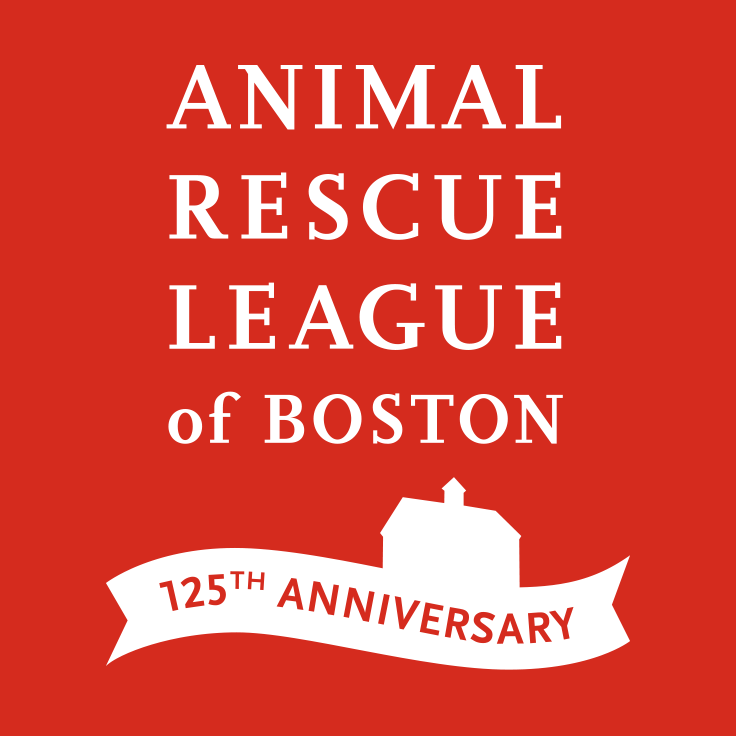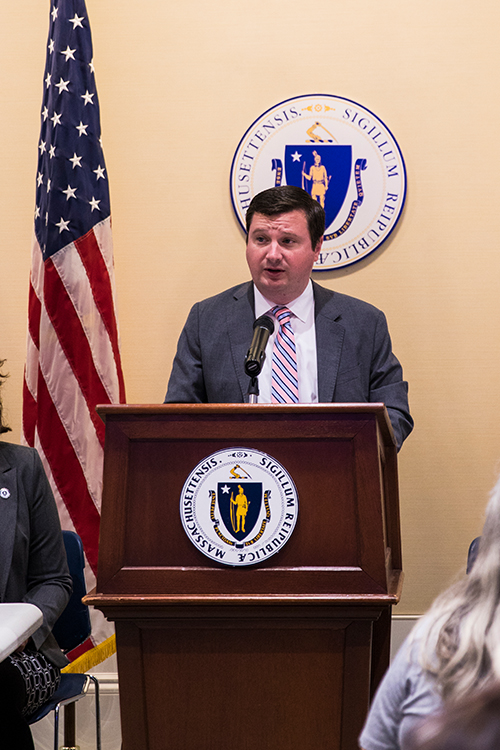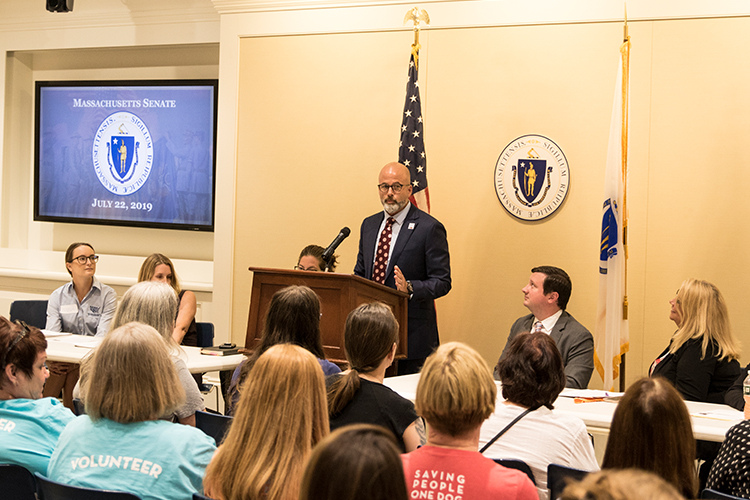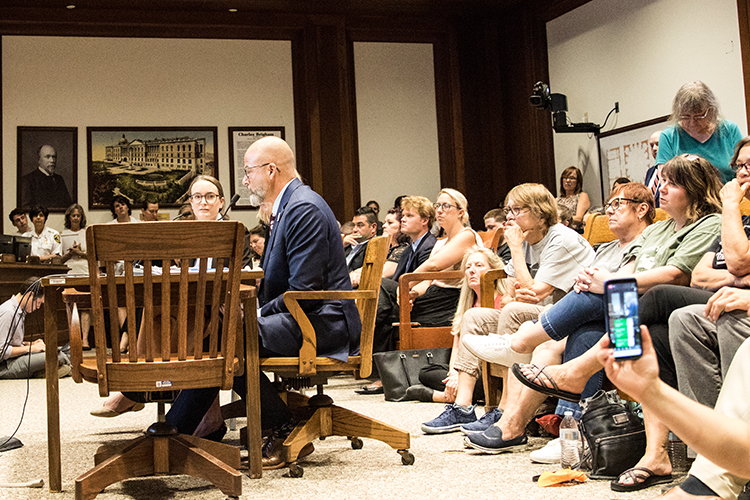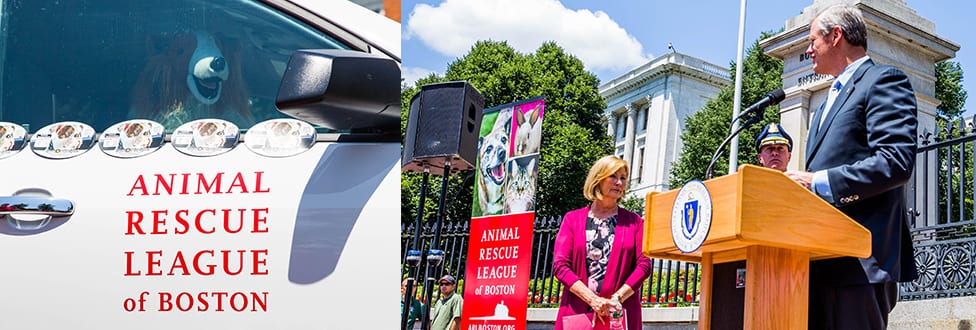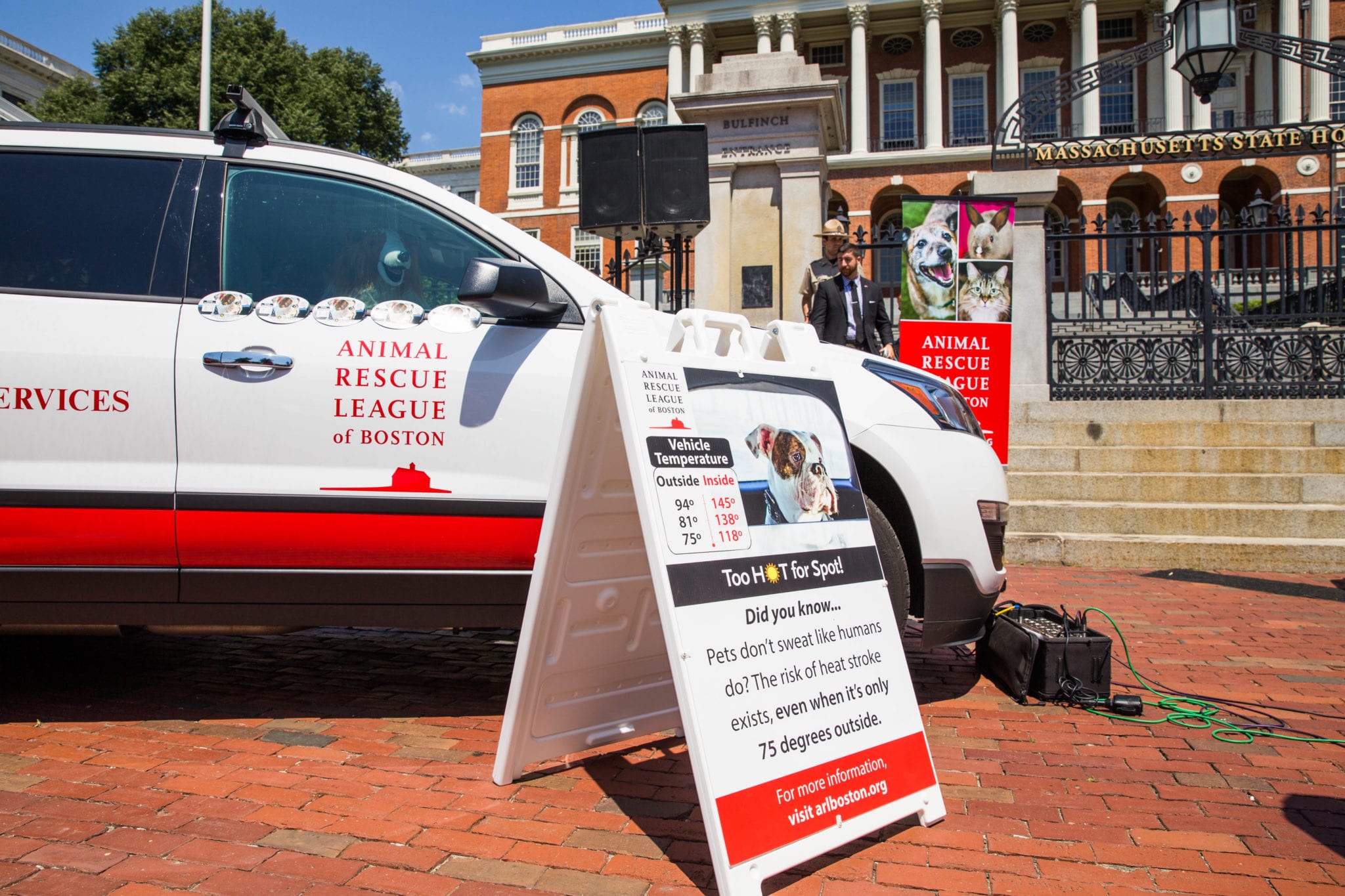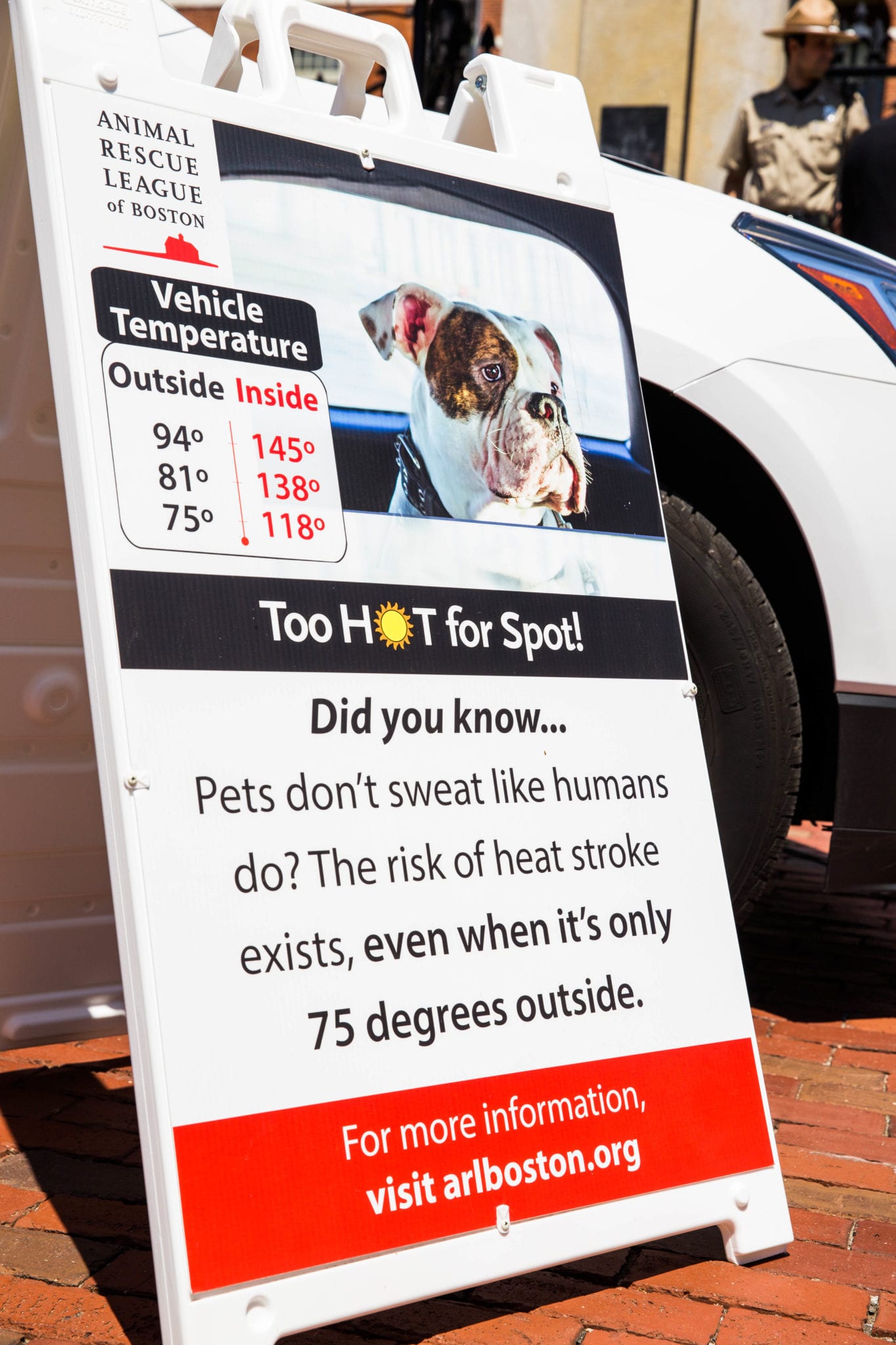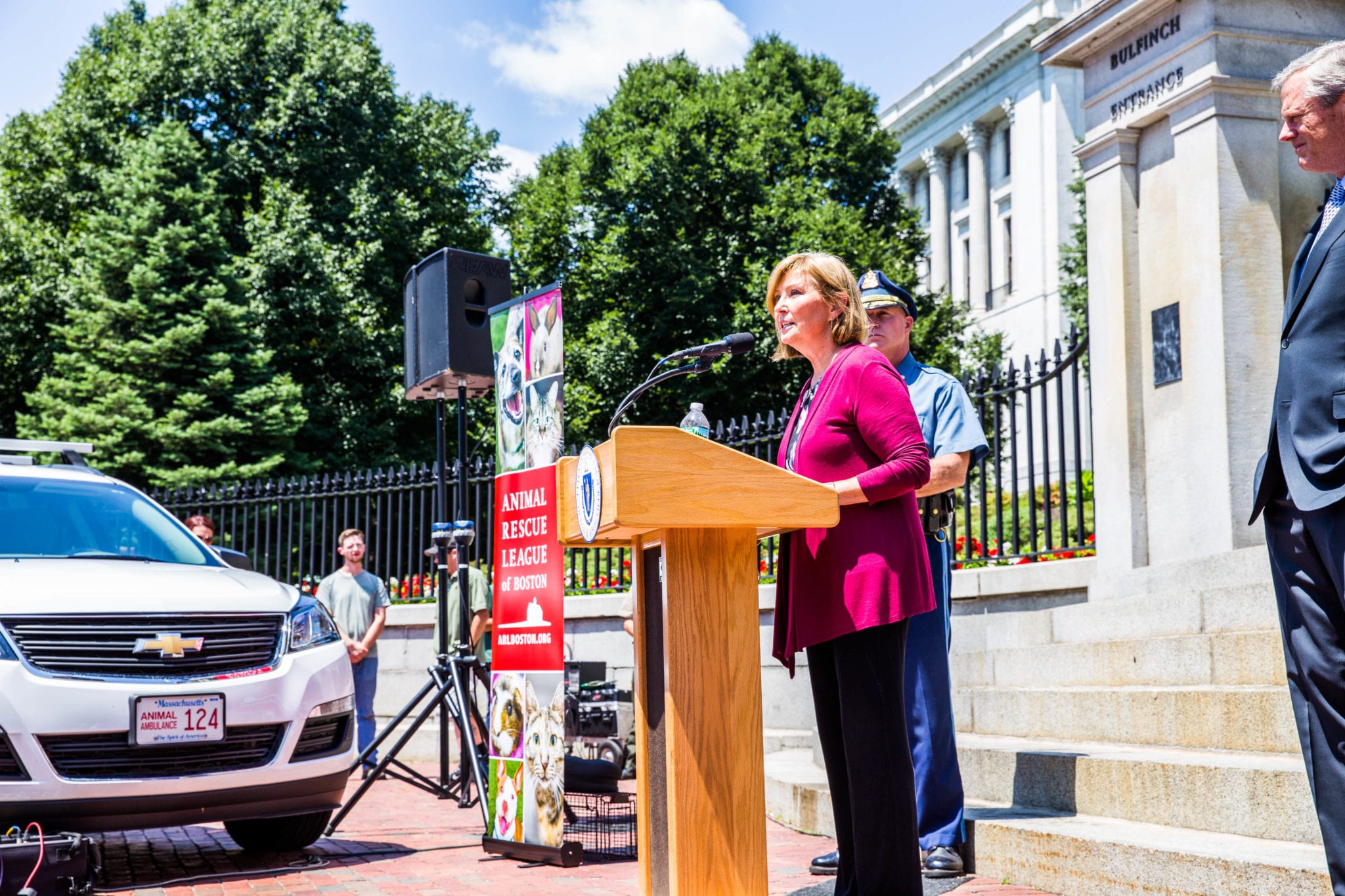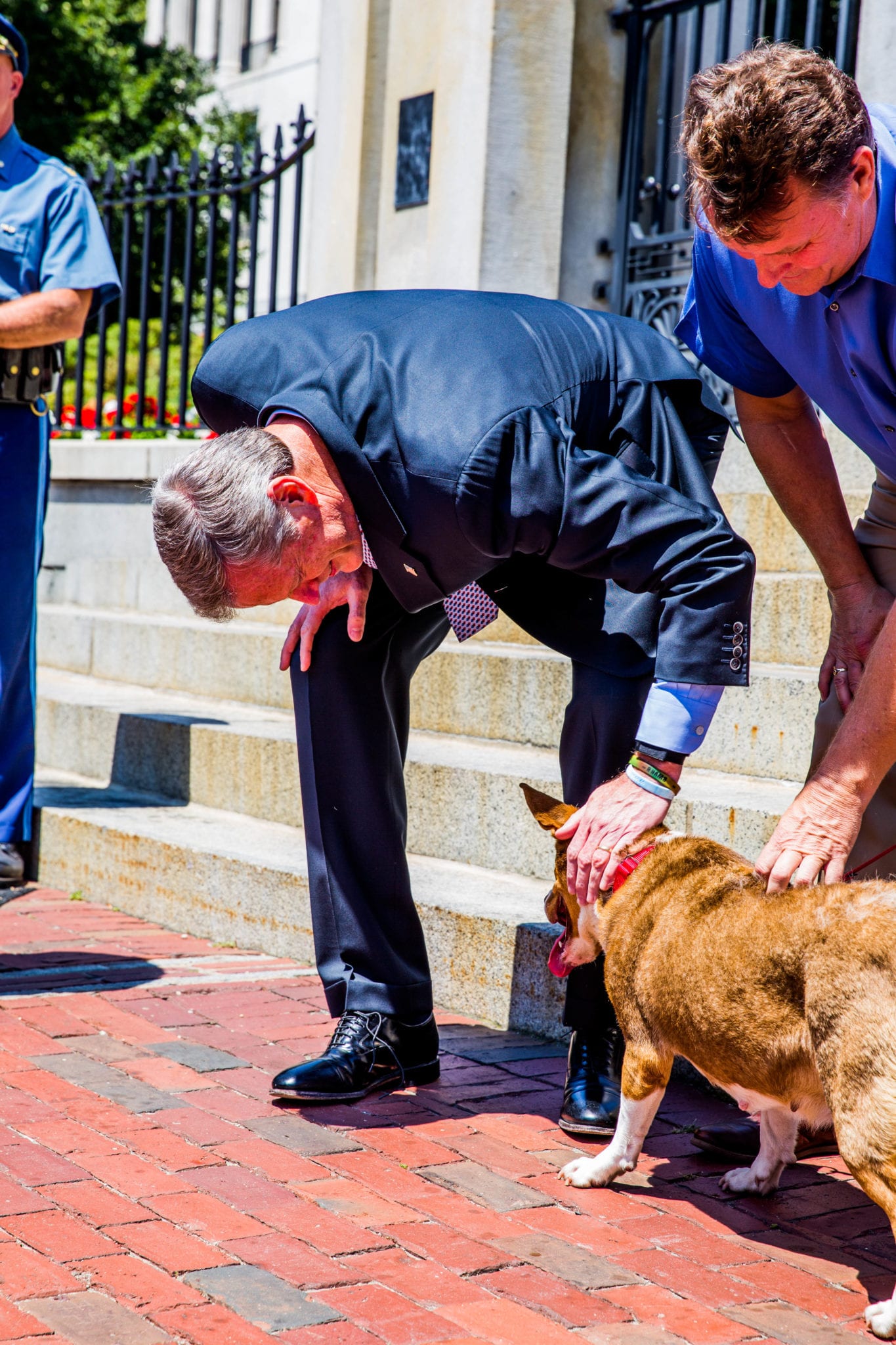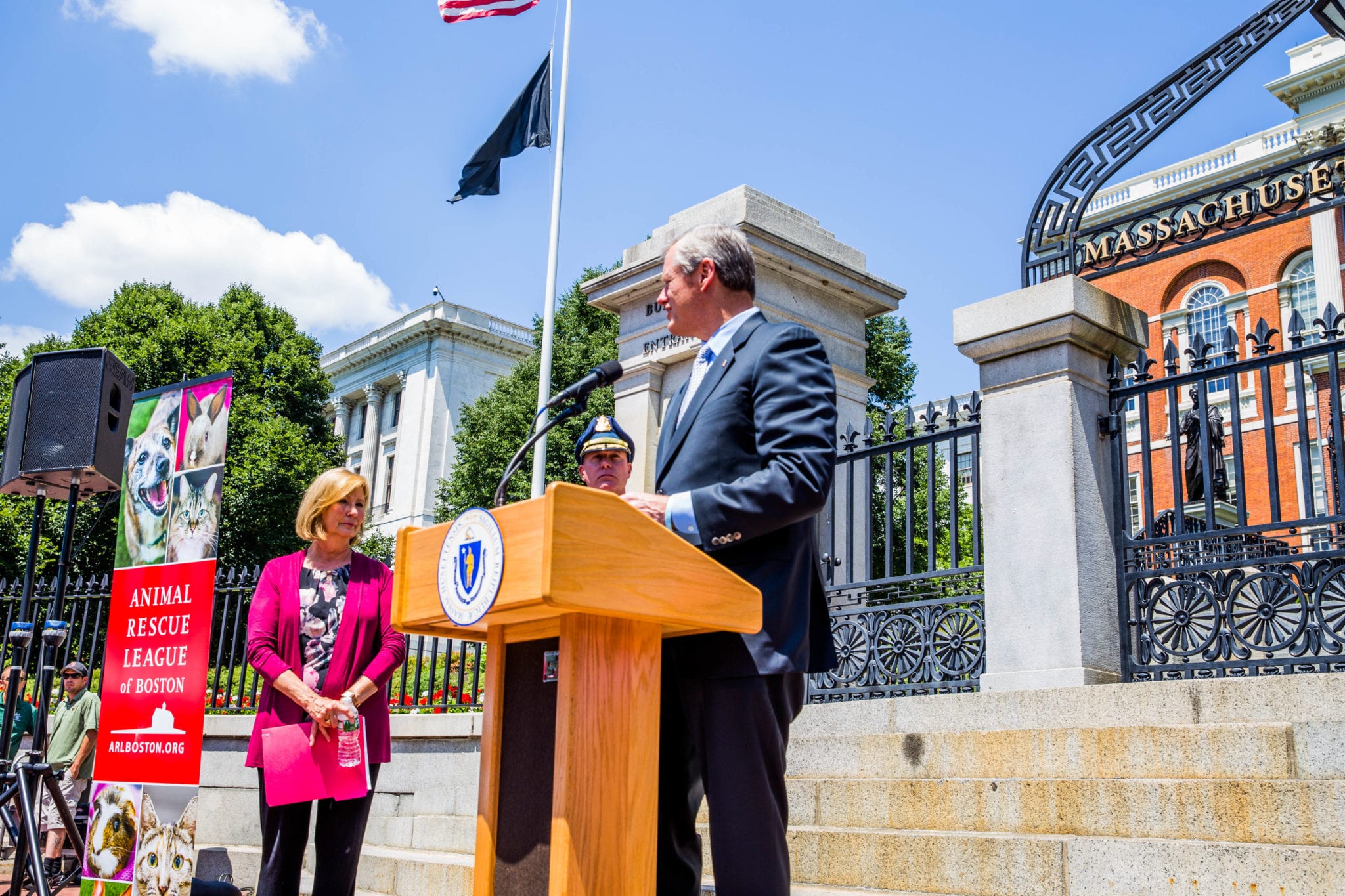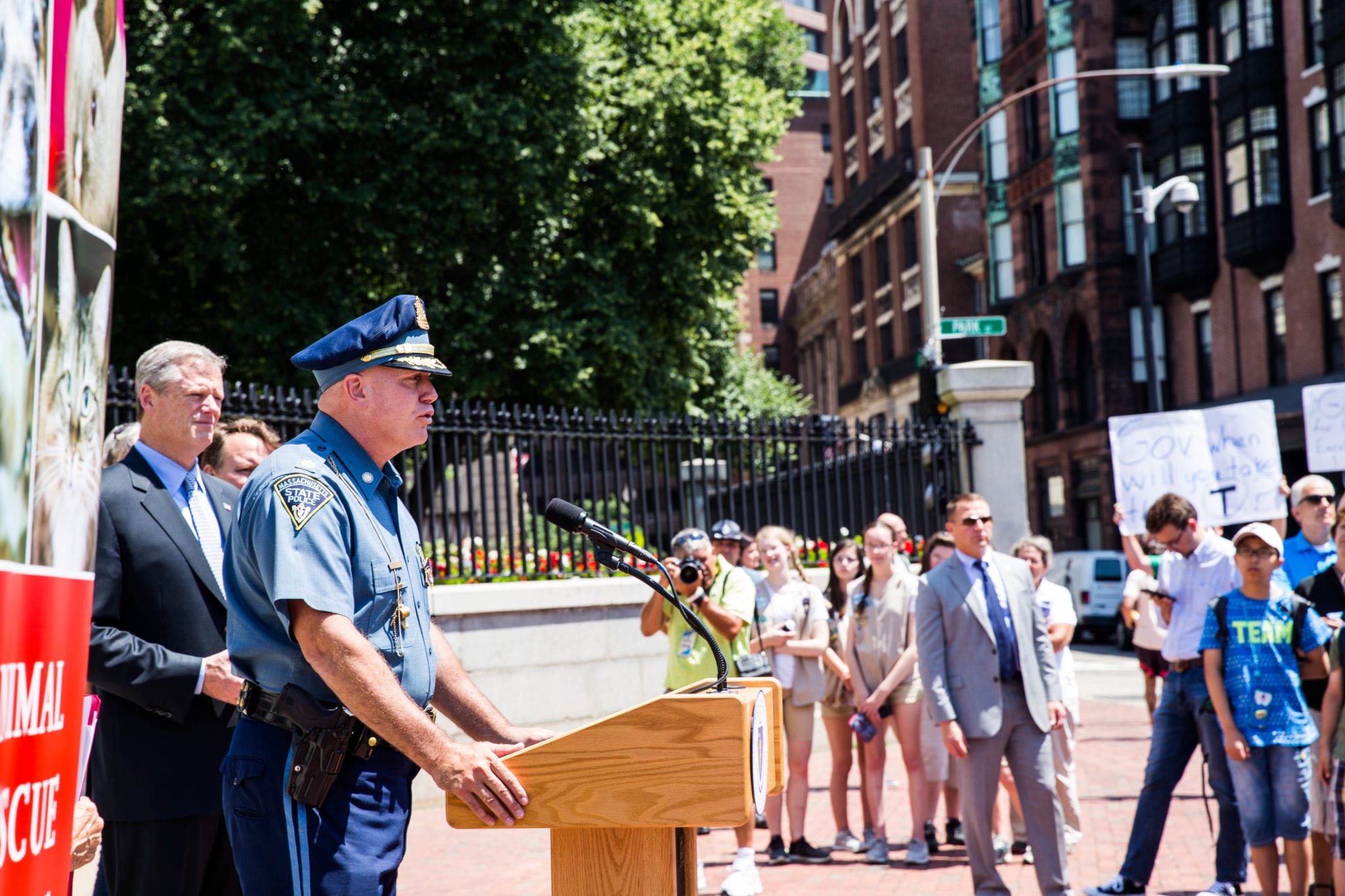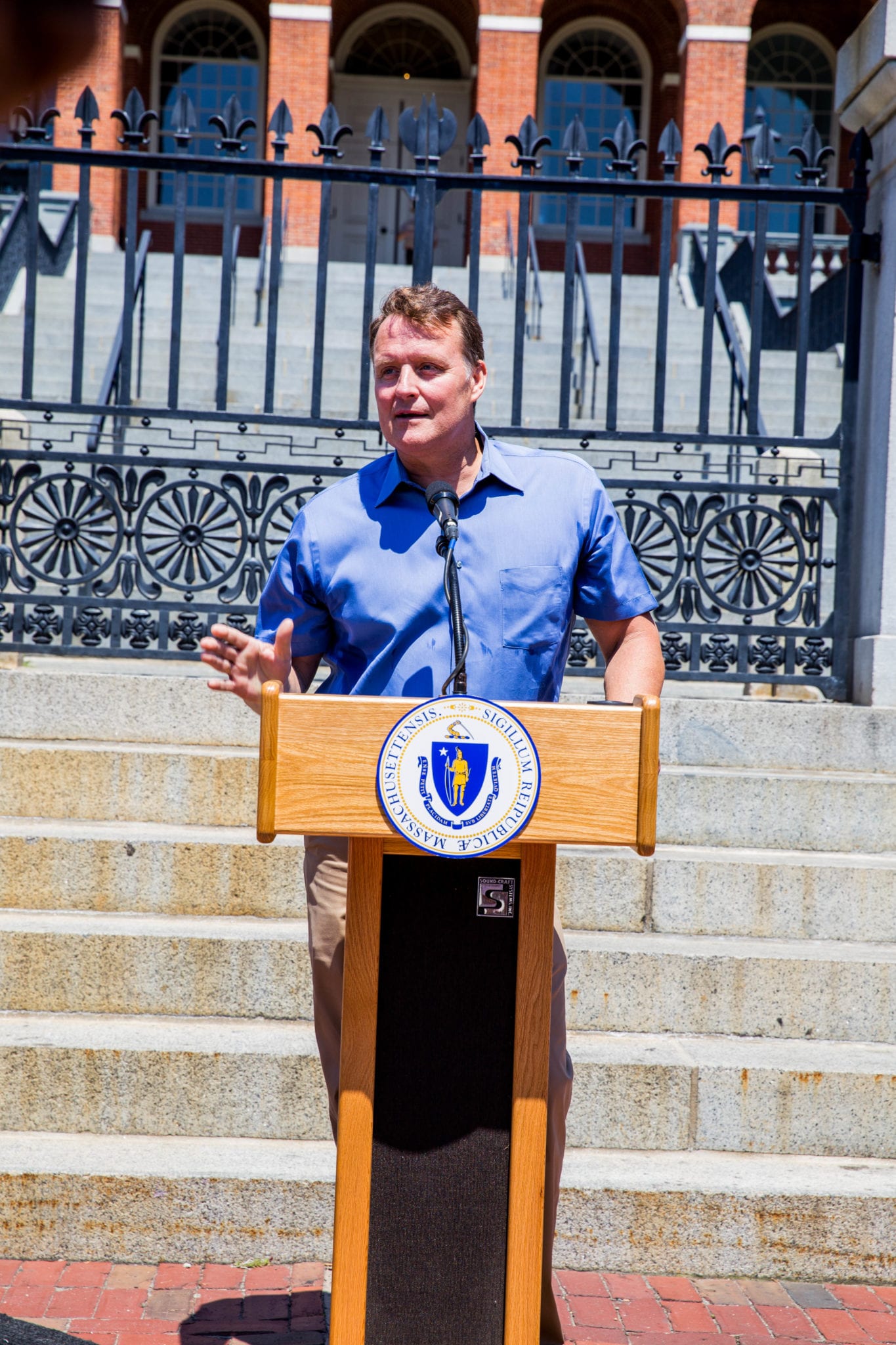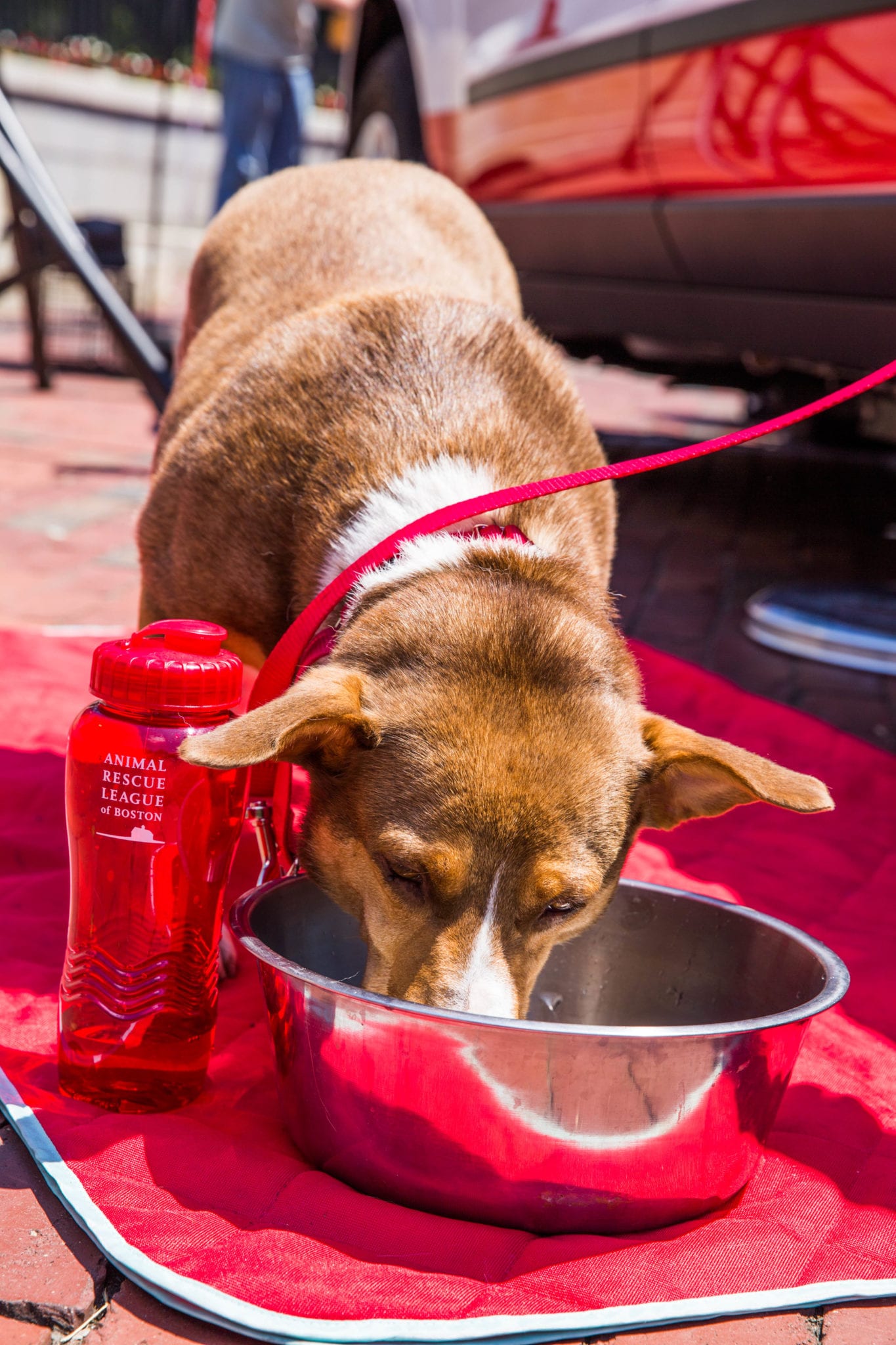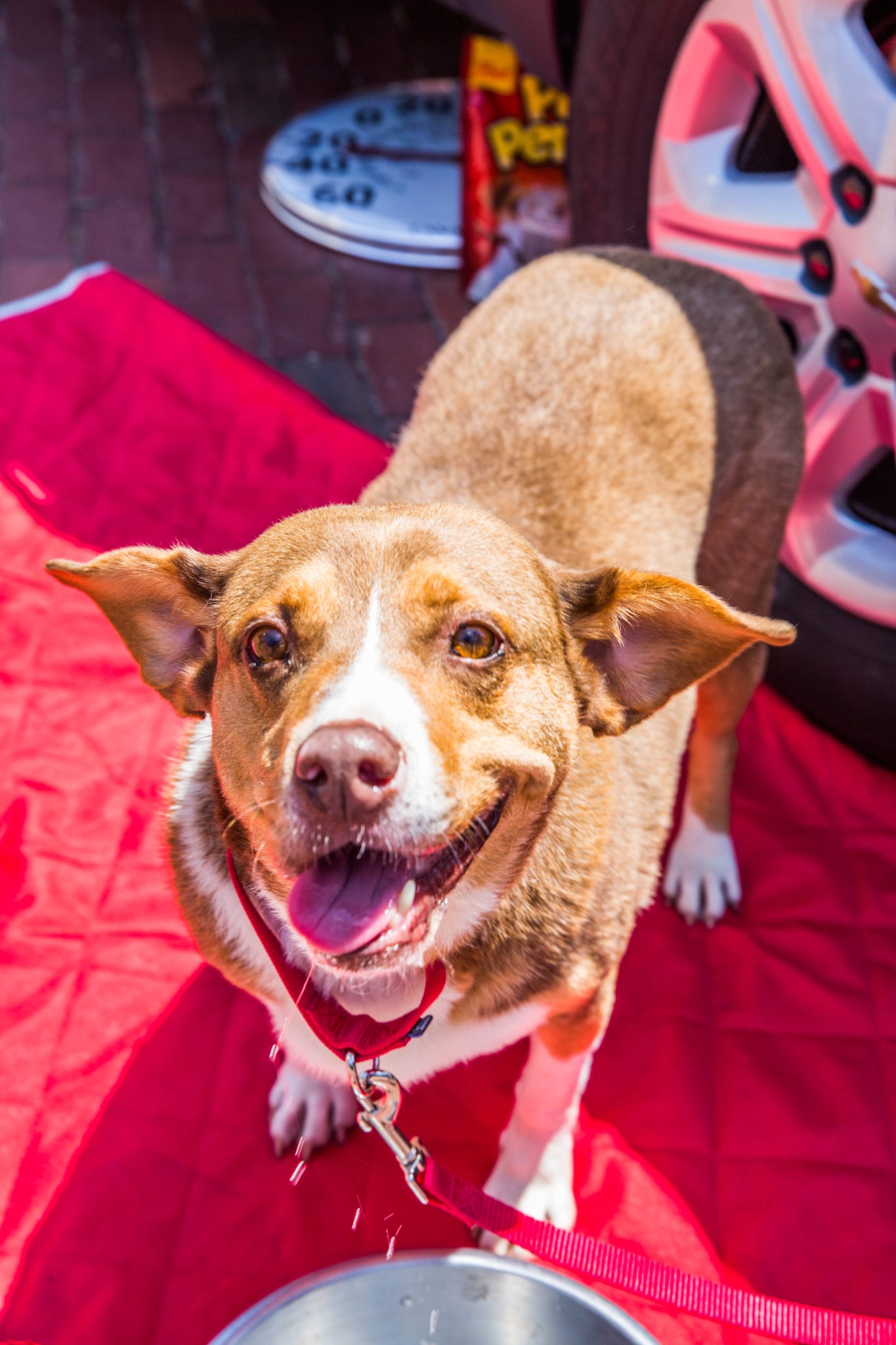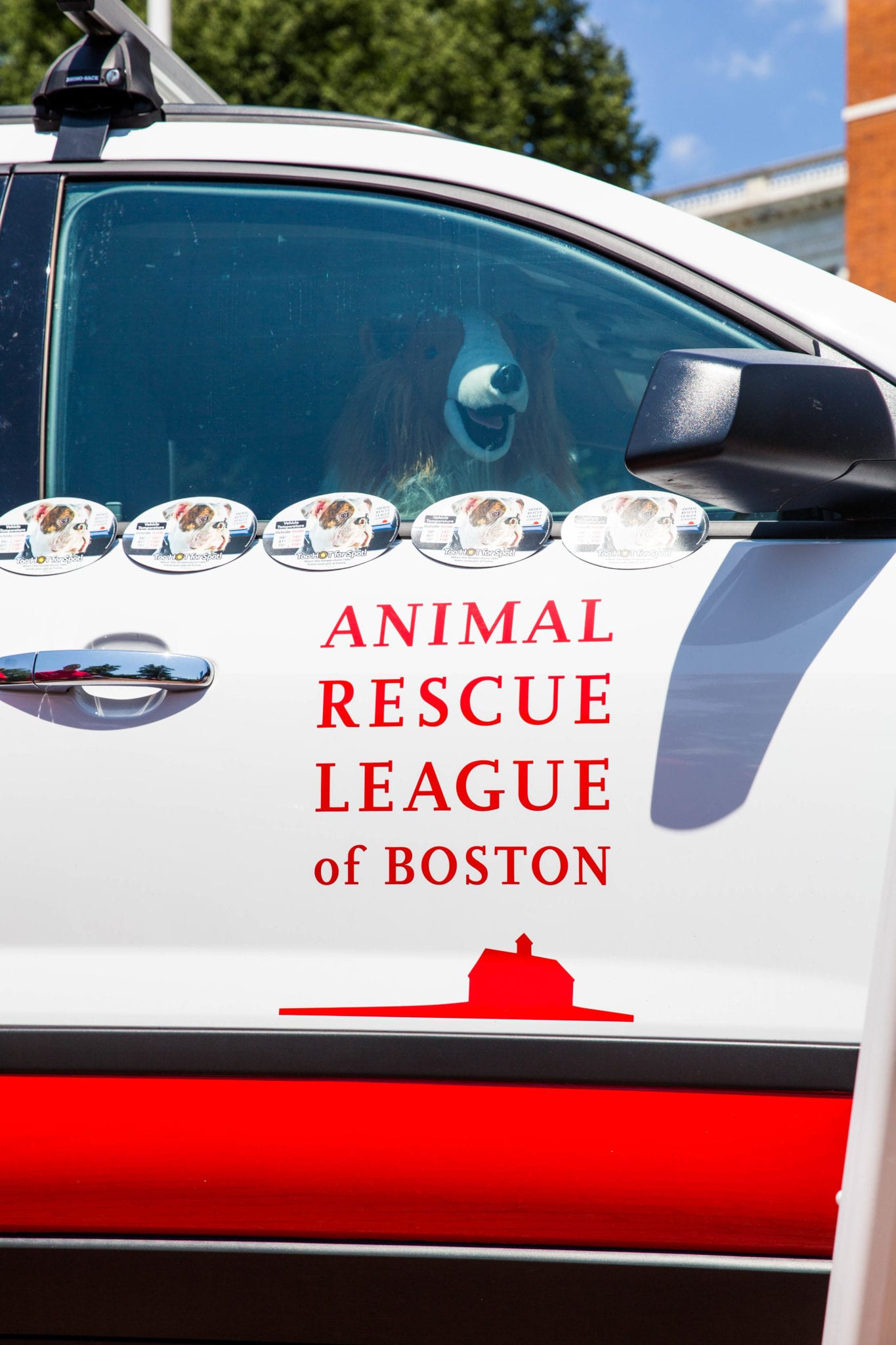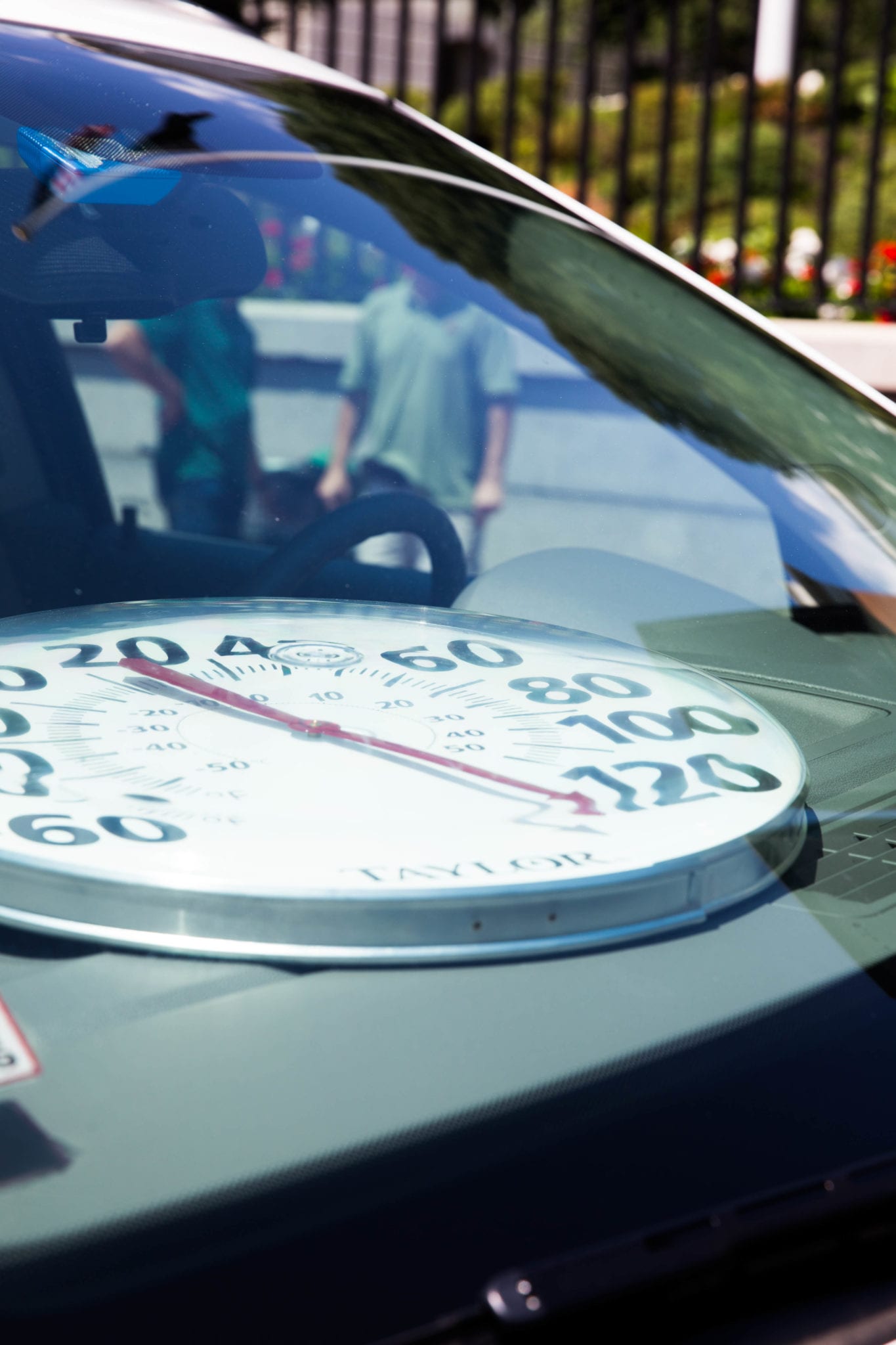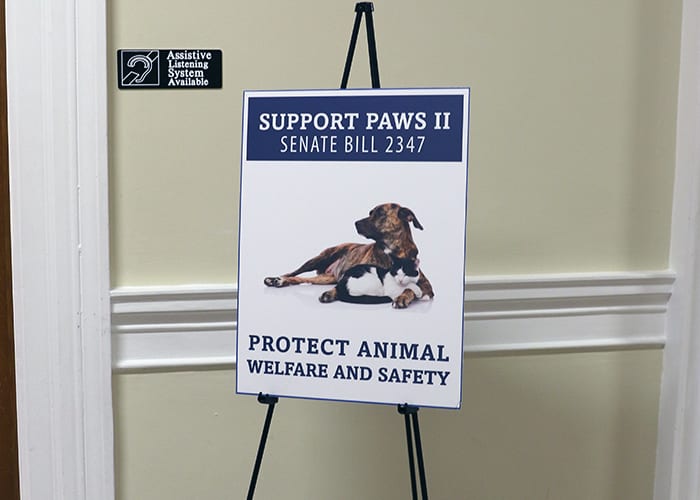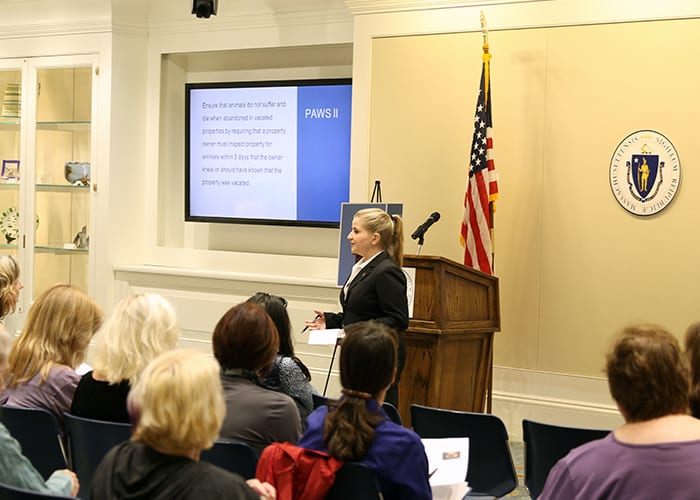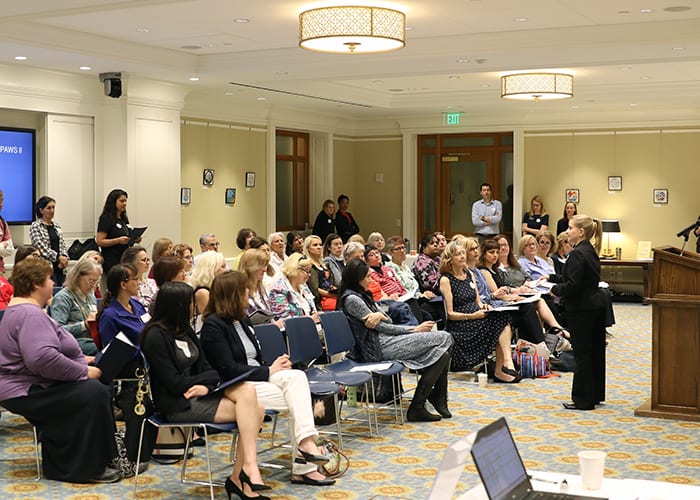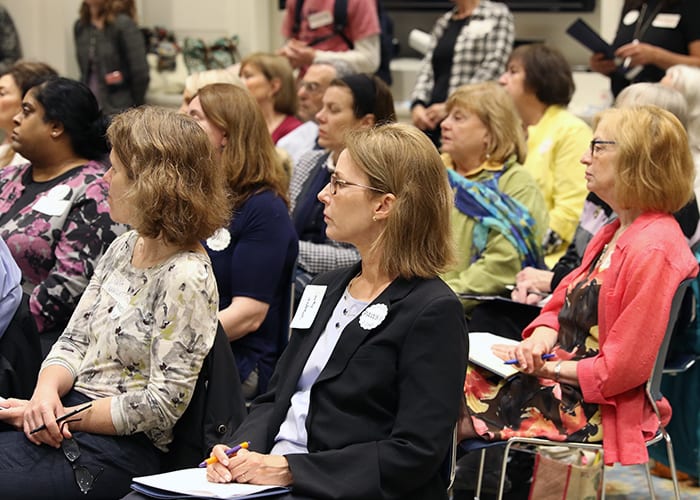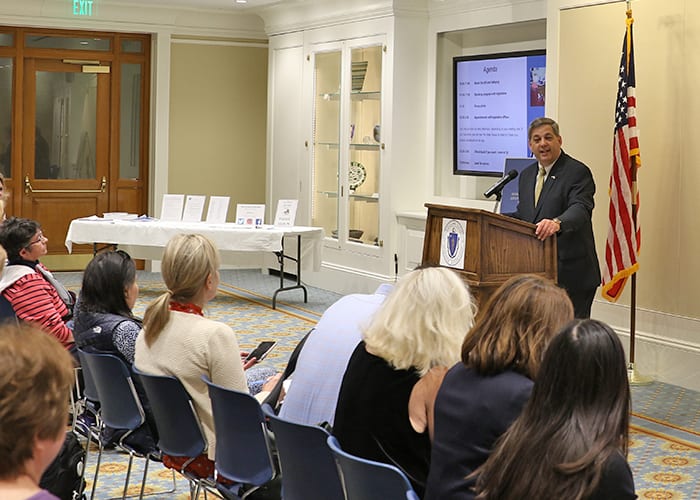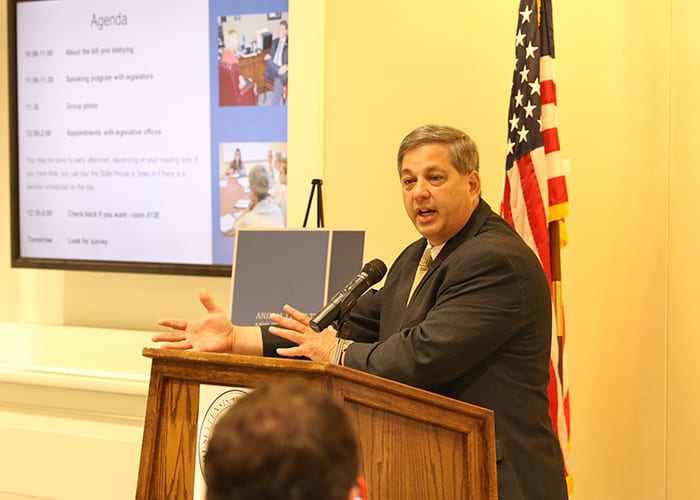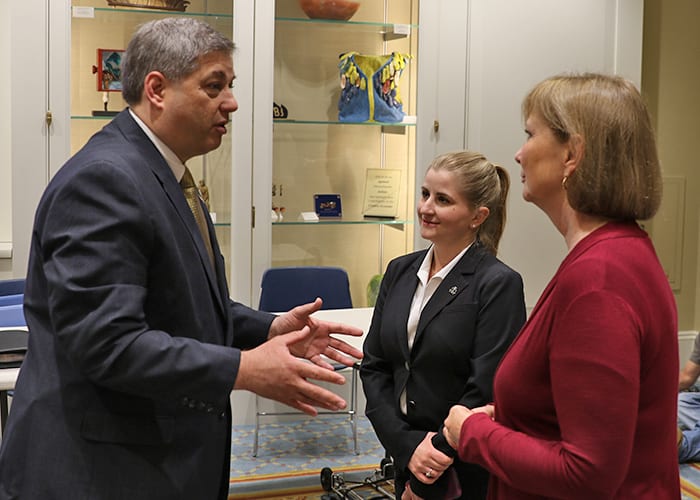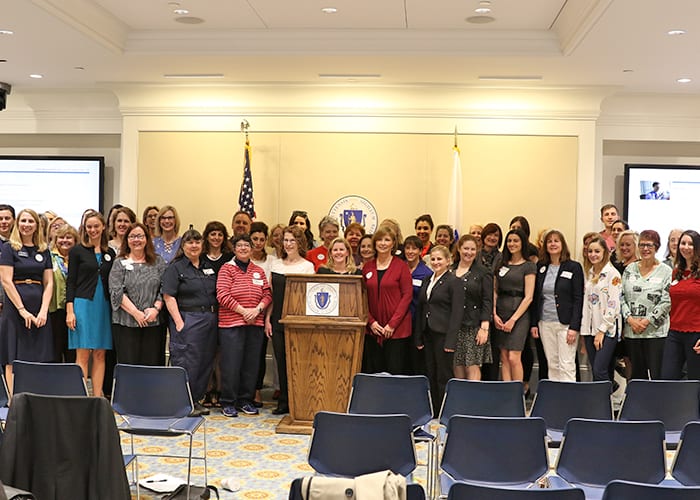Kennel Regulations, Increasing MAF Funds, Blue Hills Forest Take Center Stage at State House
ARL Addresses Joint Committee
On Tuesday, the Joint Committee of Environment, Natural Resources and Agriculture convened to hear testimony on nearly two dozen bills, many of which were animal-related.
The Animal Rescue League of Boston (ARL) provided testimony on six separate bills, all of which are a part of the organization’s 2019-2020 Legislative Agenda.
While S. 114/H. 1774: An Act protecting the health and safety of puppies and kittens in cities and towns encompasses several elements, including establishing state-wide regulations regarding boarding kennel and daycare facilities; S. 510/H. 3603/H. 812 are all stand-alone bills that specifically address boarding kennel regulations.
The wording of these individual bills may differ slightly, but each aims to establish regulations for boarding kennel and daycare facilities to include staff qualifications and development, provider/dog ratios and interaction, group sizes and supervision, minimum housing and care requirements, indoor and outdoor facility requirements, utilities, dog handling, emergency response protocols and training, insurance, and penalties for violation, among others.

ARL Law Enforcement Director Lt. Alan Borgal shows the committee images of an animal who was mauled at a South Shore boarding facility.
“Right now it is up to the consumer to be their own advocate and to do their own homework,” Dr. Edward Schettino, ARL Vice President of Animal Welfare and Veterinary Services, expressed to the committee. “However, most consumers are unaware of this and trust the facility that they choose to take care of their pet, unknowing of the lack of regulations.”
Earlier this year, ARL launched the Kennel-9 safety campaign, giving pet owners 9 things to consider before boarding their pet in an effort to protect animals and their owners from a potentially dangerous situation.
ARL has unfortunately been involved in numerous incidents at boarding facilities where a lack of oversite, improper facilities or protocols led to injury or even death for animals in their care. Law Enforcement Director Lt. Alan Borgal shared one of these incidents with the panel to show the need for regulations.
The organization feels state-wide regulations are critical to improve safety and quality of care for facilities across the Commonwealth.
Mass Animal Fund
ARL also testified on S.501: An Act to provide additional funding for animal welfare and safety programming.
This measure would provide additional monies to the Mass Animal Fund, an organization which strives to prevent animal homelessness by offsetting costs for vaccination and spay/neuter of homeless dogs and cats, as well as dogs and cats owned by low-income residents, and to assist with training of animal control officers.
ARL is a provider of services for the Mass Animal Fund spay/neuter voucher program and through the Community Surgical Clinic and Spay Waggin’, ARL has provided more than 200 spay/neuter surgeries in the past two years.
If passed, this bill would direct funds collected through administrative fines pursuant to Section 37 of Chapter 129. This would be in addition to donations currently generated through Line 33f on the state income tax form.
Blue Hills Reservation
Finally, ARL also testified on H. 757: An Act to study the health of the Blue Hills Forest and ecology to inform long-term reservation management.
This bill would commission a study and scientific survey on the Blue Hills Reservation to determine why the forest health is in decline.
Be an Advocate for Animals
With more than 90 animal-related bills filed for this legislative session, this hearing was critical to help move these important animal protection bills forward in the legislative process.
But we can’t do it alone. Your elected officials work for you, so please take a look at ARL’s 2019-2020 legislative agenda, and contact your representatives to show your support for improving laws to protect animals in Massachusetts.
